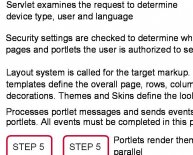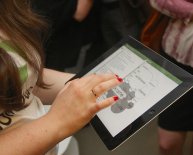
Quantitative Analyst Interview questions
Are you preparing for an interview for a quantitative role and have no idea of what to expect? Look no further! In this chapter, we will show the types of questions you should expect to face in a quantitative job interview. Building on this, in the next chapter we will give you primers for Mathematical Finance, Econometrics and Statistics, which will cover some basics all prospective Quantitative Analysts must be familiar with.
Many of the questions in this chapter do not relate to quantitative finance in any kind of direct way. However, they are designed to test your ability to think through quantitative problems. These questions demonstrate that being an effective Quantitative Analyst does not simply equate to having detailed knowledge of complex formulas. Rather, you need to be able to think on your feet, and these questions test that ability.
Know that almost all of your interview questions will relate in some form to mathematics, statistics, econometrics or programming. Think of interviewing as an opportunity to demonstrate how many skills you have accrued in these areas. Do not be upset if there is some area covered in an interview question that you’ve never been exposed to—the goal is not to demonstrate that you know everything. It is to demonstrate that you know a lot, and you know how to work with the knowledge that you do have. Keep your answers focused, but include relevant techniques you might incorporate into solving a problem, and be prepared to explain how you’d use such methods.
Here’s an example. Are you being asked to value a customized stock option? Talk about the valuation framework, and how you might forecast future prices using a Monte Carlo simulation technique. (What type of drift and volatility process will your simulation incorporate?) Remember that you should be prepared to fully detail any concept you mention during a conversation. Don’t use the phrases “Markov process”, “risk-neutral measure” or “Bayesian inference” unless you’re prepared to explain these topics. Even if you don’t answer a specific question correctly, talking about other concepts you’re familiar with during the interview process may give you an opportunity to “redeem” yourself.
And don’t be afraid to ask questions, too! An intelligent question—whether about how something is modeled, how portfolio risk is calculated, or how an asset is valued can go a long way to proving that you are the type of employee who will be engaged and willing to go the extra step to solve unanswered questions or improve an existing process.
Basic Personality/Standard Interview Questions
In any interview, expect the hiring manager to request that you “walk” them through your resume. The interviewer may be asking you this because he or she did not have time to read through your resume before meeting you. Or, he or she may want to see which areas of your background you choose to focus on, and how effectively you communicate. Either way, this is your opportunity to show why your past experience makes you a fit for this job. Emphasize any classwork, projects, work or teaching experience that is relevant to the Quant world.
Note that for non-technical questions, it is not just the content of your responses that matters—just as important is the manner in which you verbalize them. Are you confident? Are you at a loss for words? Be quick on your feet, but be thoughtful as well.
Some other questions in this area might include:
- Tell me something about yourself that is not listed on your resume.
- What is the riskiest thing you’ve ever done?
- Are you more risk-averse or risk-seeking? Give me an example.
- What is your greatest weakness?
- How do you feel about waking up early or staying up late?
- What are your interests outside the classroom/office?
- Why should we hire you?
- What is your favorite class that you took?
- Who has personally influenced you the most? Name someone whom you’ve never met who’s been a strong influence.
- Tell me about your biggest failure or a period of adversity.
- Discuss a difficult ethical decision you recently faced.
- What’s the last book you read?
Brainteasers/Quantitative Interview Questions
As we mentioned, most interview questions will relate in some form to mathematics, statistics, econometrics or computer programming. You may get finance-specific questions if you’ve studied finance at university or worked in finance before, but the main goal of the interview will be to determine your ability to think through quantitative concepts. Don’t be afraid to ask questions if you need help, and just as you would in school, when you are faced with challenging questions given in this chapter, always show your work, and explain your thought process.
Here are some examples.
If you look at a clock and the time is 12:15, what is the angle between the hour and the minute hand?
We know that at 12:15 the angle is slightly less than ¼. Why? Because the hour hand needs to move from “12” to “1” over the course of an hour, the hour hand is a little past 12 (and thus the angle is a bit less than 90). Start off with the basics – a clock, which is a circle, is 360 degrees.
Each hour on the clock represents 30 degrees (360 degree clock divided by 12 hours).
Now, the minute hand has only moved ¼ of the way through the hour (the minute hand is at 15, which is ¼ of the way around), so the hour hand has moved 7.5 degrees (30 degrees per hour times ¼ move in the minute hand). Now we know the hour hand moved 7.5 degrees, so the answer is 82.5 degrees (90-7.5).

















